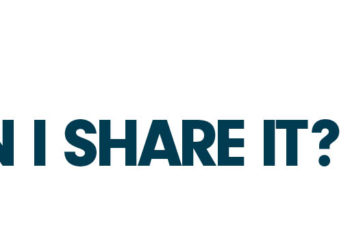Editor’s Note: Today’s post is by Steven Heffner and Shalu Gillum. Steven is the Vice President of Product Strategy for Wolters Kluwer Health Learning, Research & Practice, and he served as a member of the MLA InSight Program Committee. Shalu is the Head of Public Services for the Harriet F. Ginsburg Health Sciences Library at the University of Central Florida College of Medicine. She presented at MLA InSight on the Challenges in Promoting Information Literacy in an Academic Medical Center.
A few years ago during the Medical Library Association’s (MLA’s) annual meeting, MLA’s relatively new Executive Director, Kevin Baliozian, convened an ad hoc group of librarians and publishers to conceive a new forum for dialog between the two communities. All participants were, shall we say, wary of why we were there; after all, librarians and publishers more often find themselves in an adversarial rather than a collegial setting. However, what emerged almost three years after that initial conversation — the MLA InSight Initiative — was worth the initial anxiety and the considerable work that MLA leadership put into the effort.

The first MLA InSight Summit, themed “Engaging Users in a Disruptive Era,” took place in Chicago in March of this year. There were nearly 50 participants, balanced between librarians (from both academic and clinical settings) and publishers (from both commercial and non-profit houses). Financial support for the event came from the industry participants — namely, Annual Reviews, American Psychiatric Association Publishing, The BMJ, Elsevier, F1000, The JAMA Network, McGraw-Hill Education, New England Journal of Medicine Group, Springer Nature, and Wolters Kluwer Health.
The original idea was to create a challenging agenda of issues and a candid, open forum in which to address them. We wanted to find common ground — a mutual language and a shared perspective — from which we could address our common challenges. Not to bury the lede: the result was a remarkable atmosphere of mutual respect and collaboration on identifying issues that require collective response. There were some rough patches, yes, but overall, it was a productive and very promising start to this new series of gatherings.
Challenging Agenda
The challenging agenda created by the program committee (a committee with equal representation from industry and libraries), focused on a few themes:
- Addressing inadequacies in authentication systems
- Dealing with disruption, particularly disruption from scholarly collaboration networks (SCNs) and content pirates
- Maximizing user engagement through specialized programs and tools
Finding Common Ground
The most productive conversations and action-oriented outcomes were around topics of mutual interest and frustration, particularly those that do not fall along what we might call the “axis of contention” — the straight line from library budget to publisher revenue. The fact that publishers and librarians stand on either side of a commercial transaction doesn’t mean that we stand very far apart from each other in the larger ecosystem of scholarly communication and the endeavor of inquiry and scholarship more broadly. Quite the opposite: we share almost exactly the same challenges in terms of validating, collecting, curating, and disseminating content. Happily, MLA InSight in many ways was able to accentuate the commonality and break free of the unproductive squabbling. Here are a few examples of mutual collaborative outcomes from the discussions:
Imitating the Pirates
We found common interest in asking the question: What are pirates doing that libraries and publishers are not doing? Why do users sometimes seem to choose illegitimate sources over legitimate ones, even when they have legitimate access? How can we improve access options and functionality to make sure pirates aren’t ever “the better choice”?
- Network performance improvements are one area of effort. Often, the pirate sites are faster because they bypass the proxy servers that can be network bottlenecks.
- Efforts around text- and data-mining need to be rethought by library technical infrastructure teams and by publisher policy makers. The fact that pirate sites allow researchers unfettered access to download and mine the data must be addressed by legitimate providers.
- Finally, mutual efforts toward improved information literacy is a must so that users understand the pitfalls of using illegitimate sites and appreciate the value behind the activities of publishing and librarianship.
Encouraging Collaboration and Diverse Voices
We found common interest in facilitating and encouraging collaboration, and we brainstormed the requirements for the ideal SCN in medicine. Among the conclusions were a list of five important characteristics of the ideal platform:
- Broadly defined scholarly membership. Silos of research are not conducive to new discovery. There have to be structures that encourage multi-disciplinary interaction and serendipity. An ideal result would be an increase in the number and diversity of authors on papers, because a robust and heterogeneous submission pipeline is good for publishers and good for science.
- Interoperability with existing systems. New platforms that increase the administrative burden of university and hospital information professionals will not work. Any workflow inputs, outputs, and link-outs have to work with current systems and platforms.
- Incorporation of pre- and post-publication services. Pre-publication author services can assist with the preparation of manuscripts and the system could incorporate post-publication article-based metrics for tracking usage, impact, etc.
- Legitimate sharing functions. A platform like this could solve some of the problems of illegitimate file sharing by incorporating sharing links in accordance with the STM guidelines, and those now being developed by RA21.
- Governance with mutual confidence. All stakeholders need to trust the governance structure. An existing, well recognized organization such as ORCID would be a possibility.
Educating Users
As already alluded to, we definitely found common interests in educating users on information literacy – both the how-to and the wherefore. Attendees agreed that, thanks to the internet, our users are overwhelmed with a wealth of free information every day. Librarians have tough job in helping users determine what information is reliable, authoritative, and appropriate for them to use in both research and clinical decision making. It is important for librarians to give users the tools to evaluate health information (and the publishers of that information) on their own, so they are not falling victim to predatory practices that obscure a lack of information vetting and editing.
We agreed that the most effective way for librarians to educate our users on information literacy is to support them throughout the entire research and publishing cycle. Publishers agreed that creating more effective user guides and tutorial materials around their products and platforms would help librarians in this effort and achieve the goal of increasing usage, engagement, and impact.
Organizing for Maximum Effect
MLA leadership and their organizers, Dan Doody and Rich Lampert of Doody Consulting, did a number of things right in putting together this event, which might useful to those organizing other librarian/publisher meetings. First, they took the time to develop the program very intentionally, convening several program committee conference calls through which the key topics took shape. They diligently recruited speakers and panelists with deep domain knowledge and an interest in sharing – and not just the usual suspects – and coached them on how to craft their contributions.
The most productive conversations and action-oriented outcomes were around topics of mutual interest and frustration, particularly those that do not fall along what we might call the “axis of contention”—the straight line from library budget to publisher revenue.
In addition to recruiting speakers, the organizers recruited the audience as well. Members of the library community had to apply in order to attend, which ensured a committed and highly participatory group of attendees. The committee also assigned pre-summit reading so that the participants had a common vocabulary and referential touch points to use in the conversations.
The format of the proceedings was well-conceived. Without micromanaging the discussion, the program did proscribe a mingling of the communities and featured plenty of interactive table-level assignments, where participants could roll up their sleeves and dig into problems. By keeping the discussion to only a few topics, the groups were able to maintain focus and produce tighter conclusions. These small group discussions included leveraging specialized discovery tools to maximize user engagement; security and the future of IP authentication; lessons learned from pirate sites; and imagining the ideal social networking site for collaboration and sharing.
Finally, from the very beginning, creating enduring intellectual output and conclusions was baked into this conference. The conclusions of individual table discussions were not only shared but recorded. These recorded notes were reviewed and further refined by the whole group at the final session, and a detailed plan for communicating outcomes (including this Scholarly Kitchen post) was decided upon and assigned, with the intent being to share freely the output from the Summit. Too often, these moments of collaboration evaporate without a record; much credit must go to the organizers who kept the focus on preserving the output in order to facilitate longer term action.
From Infancy to Adolescence
From the perspective of this publisher and this librarian, the Chicago event was a success but also just a beginning. MLA InSight has the potential to become an important meeting place for our community, but it must prove itself to be a forum in which mutual candor and trust can be maintained, to which industry and librarians send high-level interlocutors, and from which enduring intellectual property can be harvested. The formula for success exists; we hope the commitment from all sides can persist as well.
Discussion
2 Thoughts on "Guest Post: MLA InSight – A Constructive Forum Emerges"
It seems to me that the problem(s) are not between libraries and publishers, but rather between publishers, thieves, and those willing to use stolen goods.
Having been a guest speaker at this event, I want to say that it was thought-provoking and engaging. The willingness to face head on the challenges was refreshing – how many times are you asked to give a talk “What ResearchGate Gets Right?” because a group wants to learn from its competition even if it vexes us? (And, yes, RG is competition for both publishers/platforms and libraries – not just for content either … also engagement, affiliation, etc.)
I’ve continued to think about many of the discussions quite a bit since the gathering. Few conferences one attends “stick” this much and so I comment MLA for its future-oriented, issues-focused approach!


